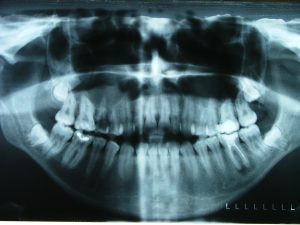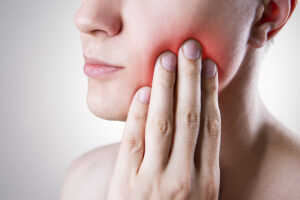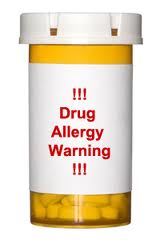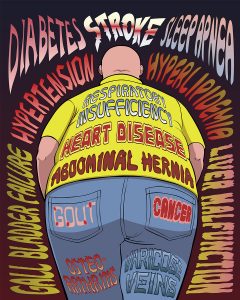“You will be frozen (numb) for another 3-4 hours, so make sure not to eat anything too hot or cold and don’t bite your lip, cheek or tongue.” I say these exact words to patients many times a day.
For the most part, I’m not too concerned about an adult patient injuring themselves, as they know what the consequences of their actions will be. These instructions are geared more towards children and more specifically their parents or care givers.
We ask that those responsible for the child closely monitor them so that they don’t bite their tongue, cheek and lip.
In most cases the injury is usually to the child’s lip. Self-inflicted lip trauma is most common when a patient is given an inferior alveolar nerve block. To get technical, it is a branch of the mandibular division of the trigeminal nerve.
When this nerve is anesthetized, the lower half of the lip feels HUGE. A curious child may bite their lip because the numbing sensation is so unfamiliar to them and they feel no pain while doing so. In addition, they cannot foresee the consequences of their action as an adult would.
Appearance of the lesion
The first sign of trauma to the lip is bleeding at the time the injury occurs. The following day is when the more ‘visible’ signs are seen. These include swelling of the lip in addition to a whitish/yellow ulcerated lesion that appears. This tends to be very upsetting to the parent and more often than not they are in quite a panic over what they are seeing. It is easy to confuse this with an infection as the healing tissue, which is white and yellowish, strongly resembles that.
Many times these children end up at the emergency department of their local hospital, because the parents are so upset about this…and who could blame them …the visual can be quite shocking.
Even in the emergency room, if the treating physician is unaware of the reason behind the trauma, the treatment they prescribe may be based on a misdiagnosis: this may include a course of antibiotics and incision and drainage of the area.
Treatment of the lesions
The ulcerated lesions caused by the lip biting are not bacterial infections, so they do not need to be treated with antibiotics.
The health care professional who first assesses the injury should get a complete dental and medical history of the patient. By doing so, they should be able to deduce that if the child was at their dentist the day before, then the lesion that they are seeing is most likely traumatic in nature.
The treatment
1) If bleeding, apply firm but gentle pressure with a gauze or cloth. If bleeding cannot be controlled go to your local hospital emergency room. A soft diet is recommended for the patient to avoid re-injuring themselves.
2) Instruct the patient to use over the counter analgesics, such as children’s Tylenol or Motrin for pain relief.
3) The dentist/doctor may prescribe .12% chlorhexidine gluconate to clean out the ulcerated soft tissue. In the subsequent days, keep the area clean.
No medical intervention is necessary unless the ulcer becomes secondarily infected.
Normal signs after a lip injury are redness, swelling and pain. If the patient develops a fever and has general malaise (does not feel well), then it is likely the lesion has become infected, in which case they should be re-evaluated and most likely prescribed an antibiotic. Healing of the traumatic area can take up to 2-3 weeks, so parents, try to be patient.
Yours in dental health,
Dr. F. Keshavarz Dentistry







